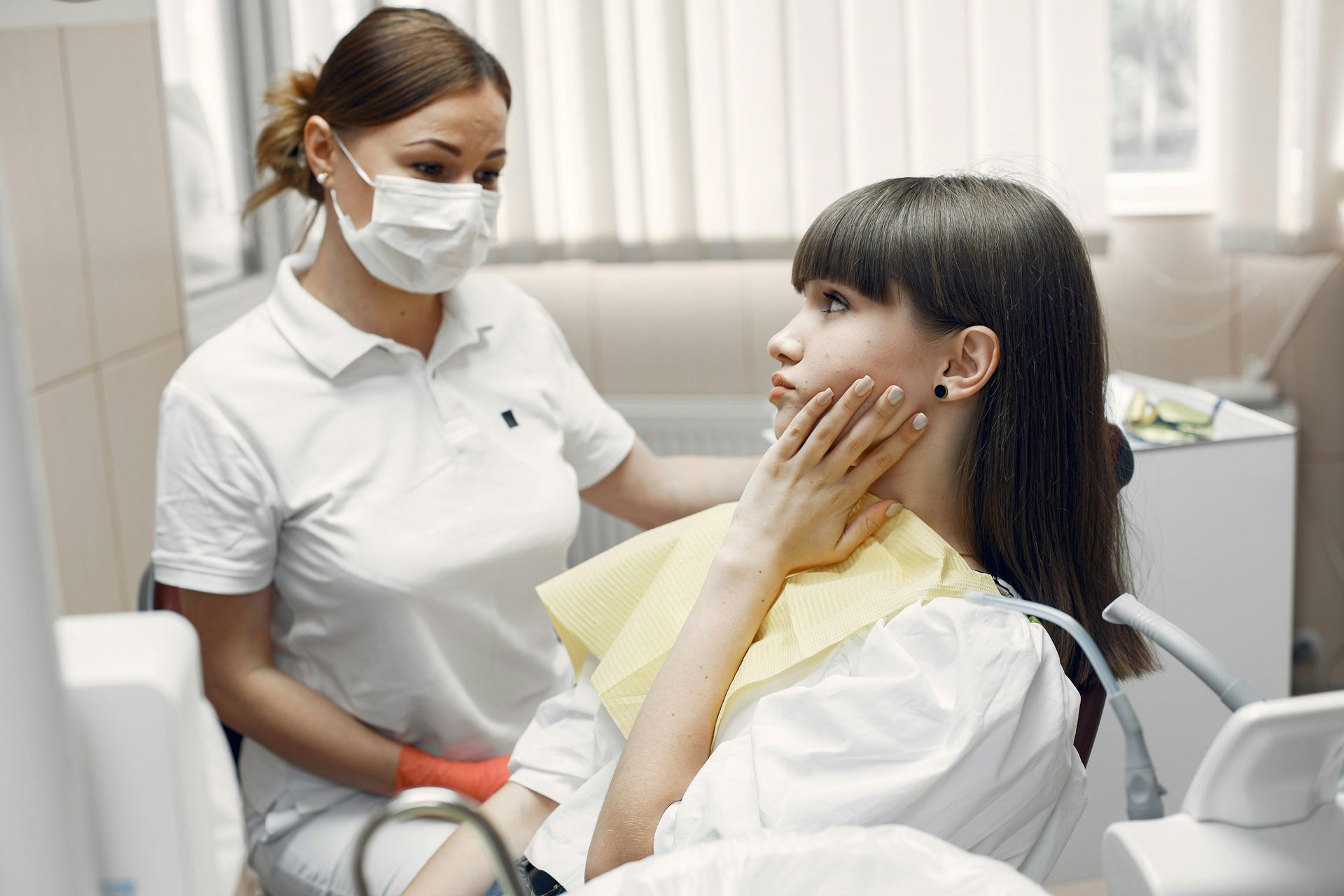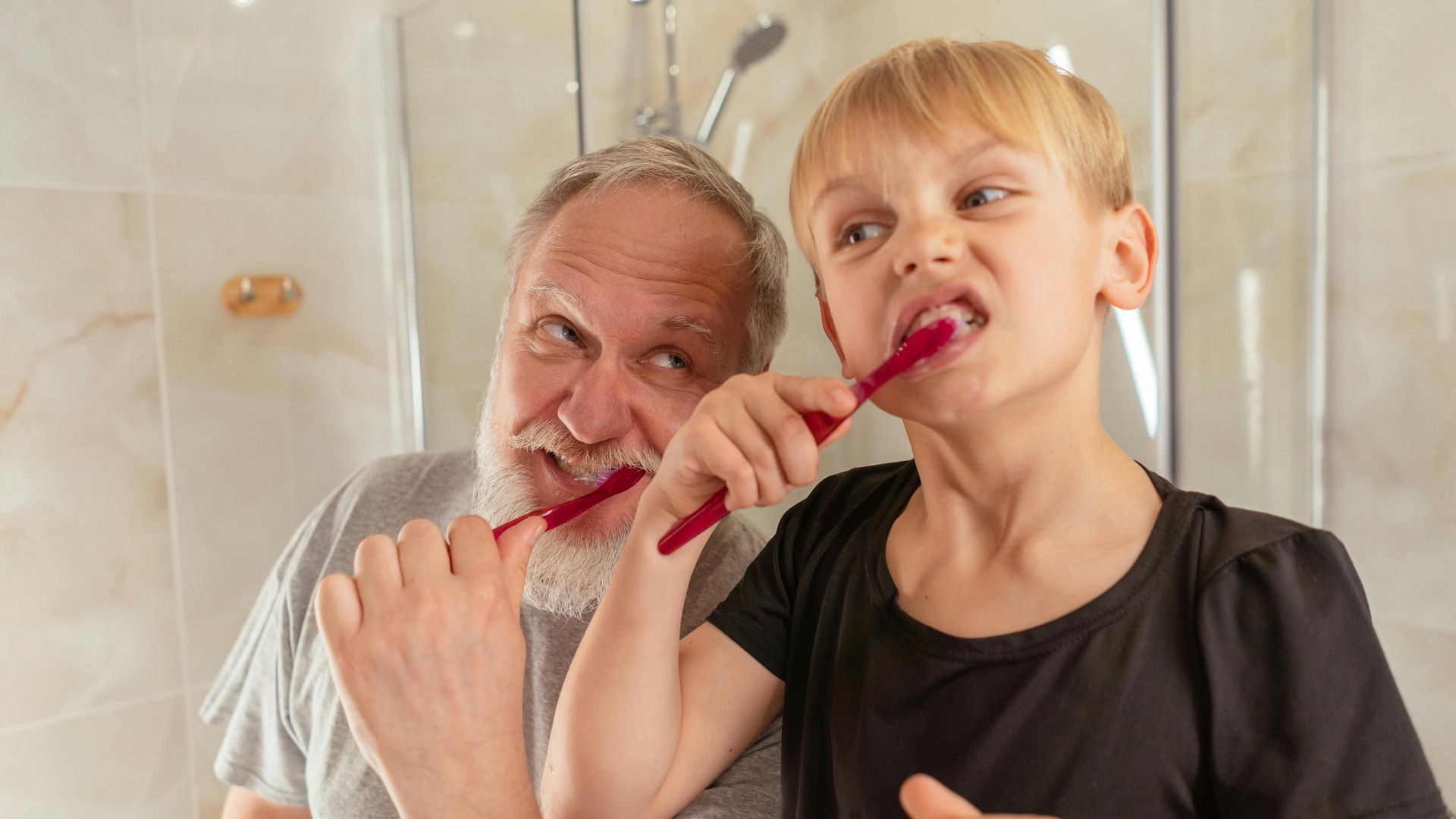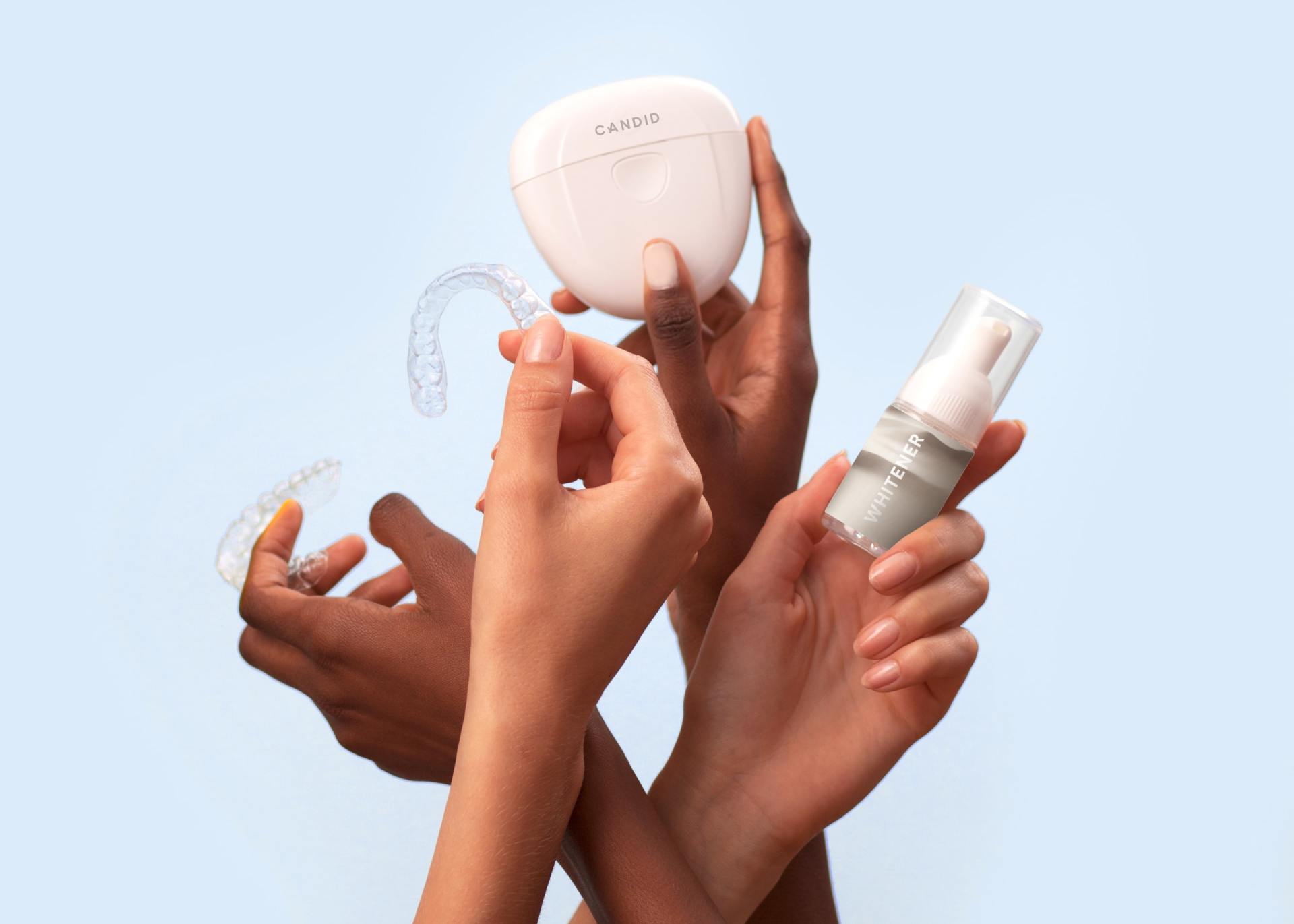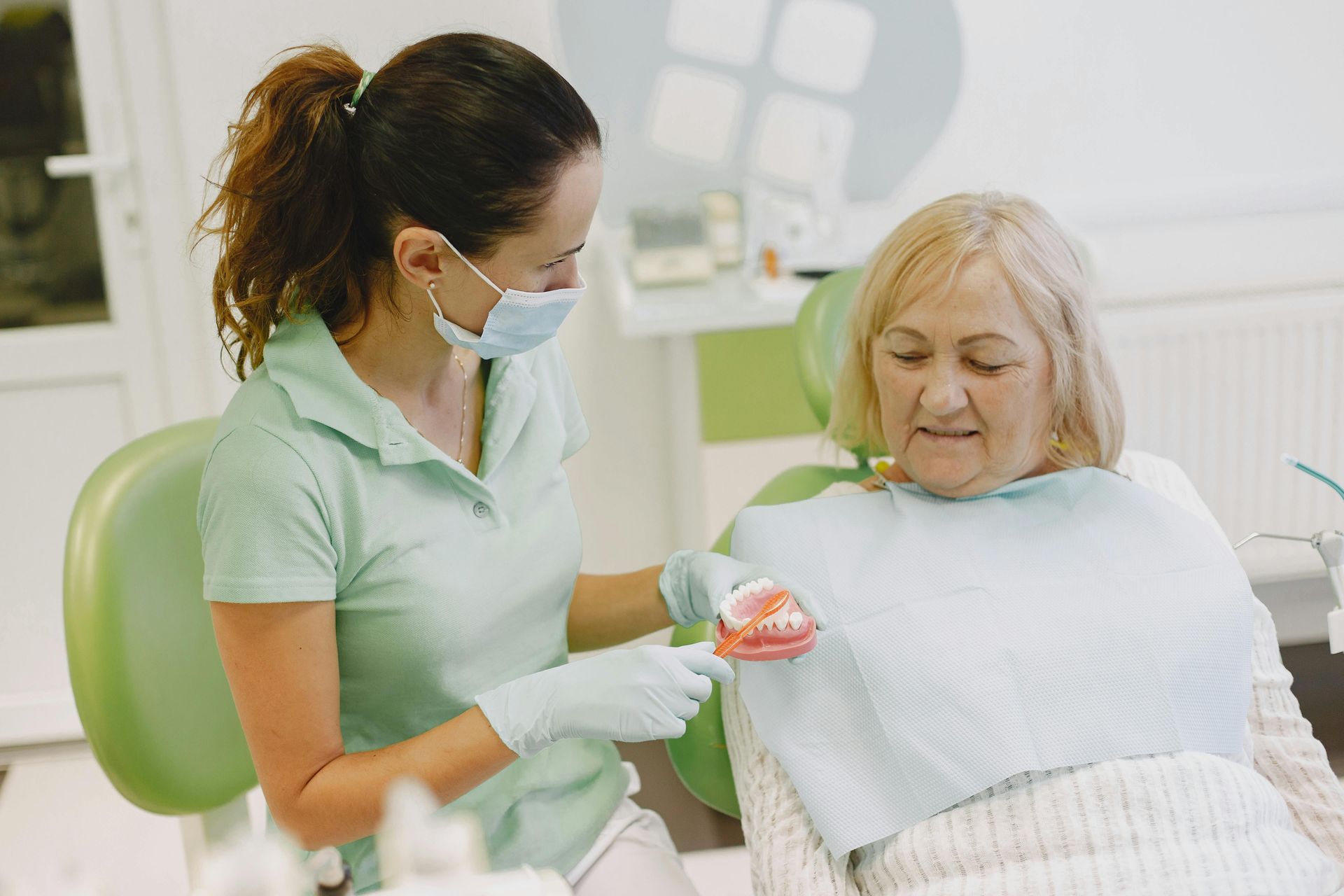How to Prepare Your Child for Their First Dental Check-Up
Importance of Early Dental Visits
Introducing your infant to dental visits early is crucial for their oral health. Pediatric dentists recommend scheduling a baby's first dental appointment around six months of age or when the first tooth appears. This early visit helps establish positive oral health habits and ensures your child's teeth stay healthy.
Key Benefits of Early Dental Visits:
- Prevention of Tooth Decay: Early checkups can prevent tooth decay by ensuring proper dental care practices are in place.
- Establishment of a Dental Routine: Starting early encourages healthy teeth and oral habits that will last a lifetime.
- Education on Oral Health: Parents receive guidance on brushing with a soft toothbrush and using a pea-sized amount of toothpaste.
What to Expect at the Appointment:
- Dental Exam: The dentist will perform a knee exam to inspect baby teeth for any signs of dental issues.
- Discussion on Oral Hygiene Habits: Topics like oral care techniques and the effects of breast milk on teeth are discussed.
- Setting Milestones: Tracking the growth of primary teeth and planning future visits.
Early dental visits set the foundation for maintaining healthy pearly whites and ensuring a positive experience with future dental
appointments.
Schedule the First Appointment
Scheduling your baby's first dentist appointment is a significant step in ensuring their dental health. A baby's initial dental visit should be scheduled when their first tooth appears or no later than their first birthday. This early dental appointment is crucial for setting a foundation for healthy teeth and gums.
Here are some key reasons to schedule this appointment early:
- Prevent Dental Issues: Early visits can prevent or catch tooth decay and other dental issues before they grow.
- Establish Oral Hygiene Habits: Begin teaching your child good oral health habits from a young age.
- Monitor Oral Development: Pediatric dentists can assess the growth of primary teeth and guide on proper dental care.
- Education for Parents: Gain valuable tips on oral habits, dental hygiene, and how to use a soft toothbrush effectively.
Discuss What to Expect at the Dentist
A baby’s first dentist appointment is an important step in ensuring their oral health. This visit typically occurs around six months of age, close to the time when the first primary teeth, also known as baby teeth, emerge. Here's what parents should expect:
Preparation and Expectations:
- Scheduling the Appointment: Aim for an early morning dental appointment when your child is most alert and in a good mood.
- Knee Exam: Pediatric dentists often perform what's known as a 'knee-to-knee' exam. The child sits on a parent's lap, and the dentist examines the mouth for any early signs of tooth decay or other dental issues.
- Education: Dentists will discuss vital topics such as oral health habits, dental hygiene, and proper oral care. They'll demonstrate how to use a soft toothbrush and may advise using a pea-sized amount of toothpaste.
- Question & Answer Session: This is a great opportunity to ask questions about breast milk's impact on teeth, teething concerns, and developing healthy teeth and oral habits.
Role-Playing Dental Visits
Role-playing dental visits is an effective strategy to prepare your child for their first dentist appointment. By simulating a dental visit at home, parents can familiarize their child with what to expect and alleviate any fears or anxieties.
Steps to Role-Playing a Dental Visit:
- Gather Tools: Use a soft toothbrush and a doll or stuffed animal as the "patient."
- Explain the Process: Describe the steps of a dental checkup—examining teeth, counting them, and practicing good oral care.
- Demonstrate: Show how a dentist might examine their teeth and encourage them to perform a "knee exam" on the stuffed toy.
- Positive Reinforcement: Emphasize the importance of healthy teeth and dental hygiene habits.
Benefits of Role-Playing:
- Builds Familiarity: Helps your child understand the dental exam process.
- Reduces Anxiety: Lessens fear of the unknown by creating a positive experience.
- Teaches Oral Health: Introduces proper dental care practices in a fun, engaging manner.
By incorporating role-playing into your child's routine, you can promote a healthy attitude toward dental visits and help maintain their pearly whites. Remember, early introduction to oral care habits can prevent dental issues and support the development of healthy teeth.
Choose a Pediatric Dentist
When it comes to your child's oral health, selecting a pediatric dentist is crucial. Pediatric dentists specialize in caring for children’s dental health from infancy through the teen years. Here are some key considerations to help you choose the right pediatric dentist:
- Qualifications and Experience:
- Ensure the dentist has specialized training in pediatric dentistry from an accredited dental school.
- Look for memberships in professional organizations like the American Academy of Pediatric Dentistry.
- Child-Friendly Environment:
- The dental office should be welcoming and equipped to handle young children.
- A fun and friendly atmosphere can make dental visits a positive experience for your child.
- Comprehensive Services:
- Choose a dentist offering a range of services such as preventive dental care, dental exams, and management of dental issues.
- Early care is essential for maintaining healthy primary teeth and ensuring a smooth transition to permanent teeth.
- Emergency Care:
- The dentist should offer emergency dental care, assuring you of immediate attention when needed.
- Location and Accessibility:
- Consider the convenience of the dental office’s location and if it fits into your routine comfortably.
Prepare Comforting Items for the Visit
When preparing for your baby's first dentist appointment, having comforting items on hand can make the experience a positive one. Transitioning to this new environment can be stressful for both parents and the child, but a little preparation can go a long way.
Consider packing a small bag with your baby’s favourite items. Here are some ideas:
- Comfort Toy: A beloved stuffed animal or blanket can provide a sense of security.
- Teething Ring: Offers relief and distraction if your little one feels uncomfortable.
- Snacks and Drinks: Small snacks and a sippy cup with water or breast milk can keep your child content during waiting times.
- Soft Toothbrush: Familiar items from home can make the introduction to dental hygiene more relatable.
Create a List of Questions and Concerns
When preparing for your baby’s first dentist appointment, it’s vital to have a list of questions and concerns ready to address with your paediatric dentist. Here’s a helpful guide to consider:
- What to Expect During the Visit:
- What is involved in a dental checkup for infants?
- Will there be a dental exam or knee exam?
- Oral Health and Hygiene:
- How can I maintain my baby's oral health habits?
- What kind of soft toothbrush and dental hygiene products should I use?
- Is it okay to use a pea-sized amount of toothpaste?
- Dental Care and Issues:
- How often should my baby visit the dentist for a dental appointment?
- What are the signs of early tooth decay or dental issues?
- Nutrition and Oral Habits:
- How does breast milk affect my baby's teeth?
- Are there any oral habits I should encourage or discourage?
- Transition to Permanent Teeth:
- How do primary teeth affect the development of permanent teeth?
- When should I expect the development of baby teeth and their replacement by permanent teeth?
By preparing these questions, you’ll ensure a thorough discussion about your child’s dental health and a positive experience during the dentist visit.
Highlight the Benefits of Preventive Care
Preventive care is a proactive approach to health, focusing on maintaining wellness to avert diseases before they arise. This strategy can offer a wealth of benefits, significantly enhancing quality of life.
- Reduced Healthcare Costs: By addressing health issues early, preventive care can help avoid costly treatments, saving money in the long run.
- Improved Quality of Life: Regular check-ups and screenings catch potential health issues early, allowing for early intervention, which can lead to better health outcomes.
- Increased Lifespan: Engaging in preventive measures can contribute to a longer, healthier life by detecting and treating conditions early.
- Enhanced Well-being: Preventive care promotes healthier lifestyle choices, improving both physical and mental health.
- Reduced Risk of Chronic Diseases: Routine visits and lifestyle assessments help in managing risk factors, mitigating the risk of chronic conditions.
In conclusion, preventive care is essential for maintaining optimal health and a proactive lifestyle. By prioritizing regular check-ups and healthy habits, individuals can enjoy a brighter, healthier future.
Establish a Dental Hygiene Routine
Establishing a dental hygiene routine is crucial for maintaining your child's oral health. Begin when the first tooth appears, typically around six months of age. Here's a simple routine to ensure healthy teeth and gums:
- Brush Twice Daily: Use a soft toothbrush and a pea-sized amount of fluoride toothpaste. Gently brush your child's teeth in the morning and before bed.
- Floss: Once two teeth touch, introduce flossing to remove food particles and plaque.
- Healthy Diet: Limit sugary snacks and encourage water and milk, including breast milk, over juice.
- Regular Dental Visits: Schedule a dental checkup by the child's first birthday to establish a positive experience with the dentist.
- Oral Habits: Discourage prolonged thumb-sucking or pacifier use beyond toddler years to prevent dental issues.
Model Positive Attitudes Towards Dental Visits
Creating a positive attitude towards dental visits is crucial for fostering healthy oral hygiene habits in children. A child's first dental appointment can set the tone for future visits and establish a foundation for their dental health.
Here’s how to make the experience a positive one:
1. Choose a Pediatric Dentist:
Select a dentist who specializes in treating children. Pediatric dentists are trained to make children feel comfortable and are experts in managing dental anxiety.
2. Schedule the First Visit Early:
The American Dental Association recommends scheduling the first dentist visit by the baby’s first birthday or within six months of the first tooth eruption.
3. Be a Role Model:
Display a positive attitude towards your own dental appointments. Let your child see that dental checkups are a normal and essential part of taking care of your health.
4. Prepare Your Child:
Read books or watch videos about dental visits with your child. Explain the importance of keeping teeth healthy and what to expect during the dental exam.
5. Incorporate Fun Oral Health Habits:
Engage in fun activities like brushing teeth together with a soft toothbrush and singing songs to promote healthy teeth and make oral care an enjoyable activity.
By implementing these strategies, you can ensure that your child’s dentist visit is a positive and educational experience.
Managing Discomfort After the Visit
After your baby’s first dentist appointment, it's normal for them to experience some minor discomfort. Here’s how you can manage it effectively:
- Use a Soft Toothbrush: Gently clean your baby’s pearly whites with a soft toothbrush to maintain healthy teeth and gums. This helps soothe any sensitivity after the dental exam.
- Maintain Oral Hygiene: Encourage good oral health habits by wiping their gums with a clean, damp cloth. This ensures any residual discomfort is minimized.
- Monitor Eating Habits: Breast milk should continue to be a primary food source for infants. If any new teeth have erupted, keep a close watch on their eating habits to prevent tooth decay.
- Pain Relief: If your baby seems particularly uncomfortable, consult with your pediatric dentist about using a pea-sized amount of infant-friendly pain relief gel.
- Positive Reinforcement: Create a positive experience by distracting your baby with soothing activities, such as gentle rocking or playing soft music.
FAQs
How can I ease my child's anxiety before the visit?
Easing your child's anxiety before a dental visit is crucial in creating a positive experience. Here are a few tips:
- Talk Positively: Speak about the dentist visit in an upbeat manner. Explain that the dentist helps keep their teeth healthy and strong.
- Role Play: Use toys or pretend scenarios to simulate a dentist appointment at home. This can familiarize your child with what to expect.
- Storybooks and Videos: Utilize children's books or videos about going to the dentist. These resources can provide a visual and engaging way for your child to understand the process.
- Visit Before They Visit: Consider taking them to the dental office ahead of time to meet the staff and see the environment, so it's not intimidating on the actual appointment day.
- Comfort Items: Allow your child to bring a favorite toy or blanket to the appointment for an added sense of security.
What should I do if my child refuses to cooperate?
If your child refuses to cooperate during their dentist visit, remain calm and patient. Here are some strategies to consider:
- Stay Calm and Encouraging: Your attitude can influence theirs. Encourage and comfort your child rather than showing frustration.
- Communicate Efficiently: Listen to your child's concerns and address them in simple language they can understand.
- Involve the Dentist: Pediatric dentists are trained to handle uncooperative children. They can use their expertise to calm and engage your child effectively.
- Schedule Strategically: Consider booking appointments at a time when your child is typically relaxed and not tired or hungry.
- Gradual Exposure: If needed, plan short, frequent visits to gradually build your child's comfort with the dental environment.
How often should my child go for check-ups?
Regular dental check-ups are essential to maintaining your child's oral health. Here are the recommendations:
- Early Start: Schedule the first dental visit by their first birthday or within six months after the first tooth emerges. This helps in identifying any early dental issues.
- Frequency: Generally, children should visit the dentist every six months for regular checkups and cleanings. However, your pediatric dentist may recommend more frequent visits based on your child's individual needs.
- Ongoing Care: These regular appointments help track the development of primary teeth, monitor potential oral health issues, and reinforce positive oral hygiene habits.
By ensuring regular dental visits, you can help foster a lifelong dedication to oral health and sustain their bright, healthy smiles.
How can I ease my child's anxiety before the visit?
Preparing for your child’s first dental visit can be a nerve-racking experience, both for you and your little one. Here are some practical tips to ease your child's anxiety before the visit:
- Choose a Pediatric Dentist: Pediatric dentists are trained to make children feel comfortable and provide a positive experience during a dental appointment. They know how to engage kids and explain procedures in child-friendly terms.
- Talk About What to Expect: Explain the dental visit in simple terms. Let them know the dentist will count and clean their teeth, ensuring they have healthy teeth and gums.
- Read Books or Watch Videos: Share stories or videos about visiting the dentist. This can help familiarize your child with the setting and process, setting realistic expectations.
- Role-Play at Home: Pretend to be the dentist and have your child practice opening their mouth. A toy toothbrush and mirror can make it a fun activity.
- Schedule a Morning Appointment: Children tend to be fresher and more cooperative in the morning when they are not yet tired.
By following these steps, your child's dentist appointment can become a stress-free part of their oral health habits.
At Don River Dental we give you the best tips . If you are experiencing any symptoms or pain please feel free to call us at (416) 901 - 9292 and someone from our team will be happy to answer any questions and schedule an appointment as soon as possible. We offer safe soothing dentistry in North York.
